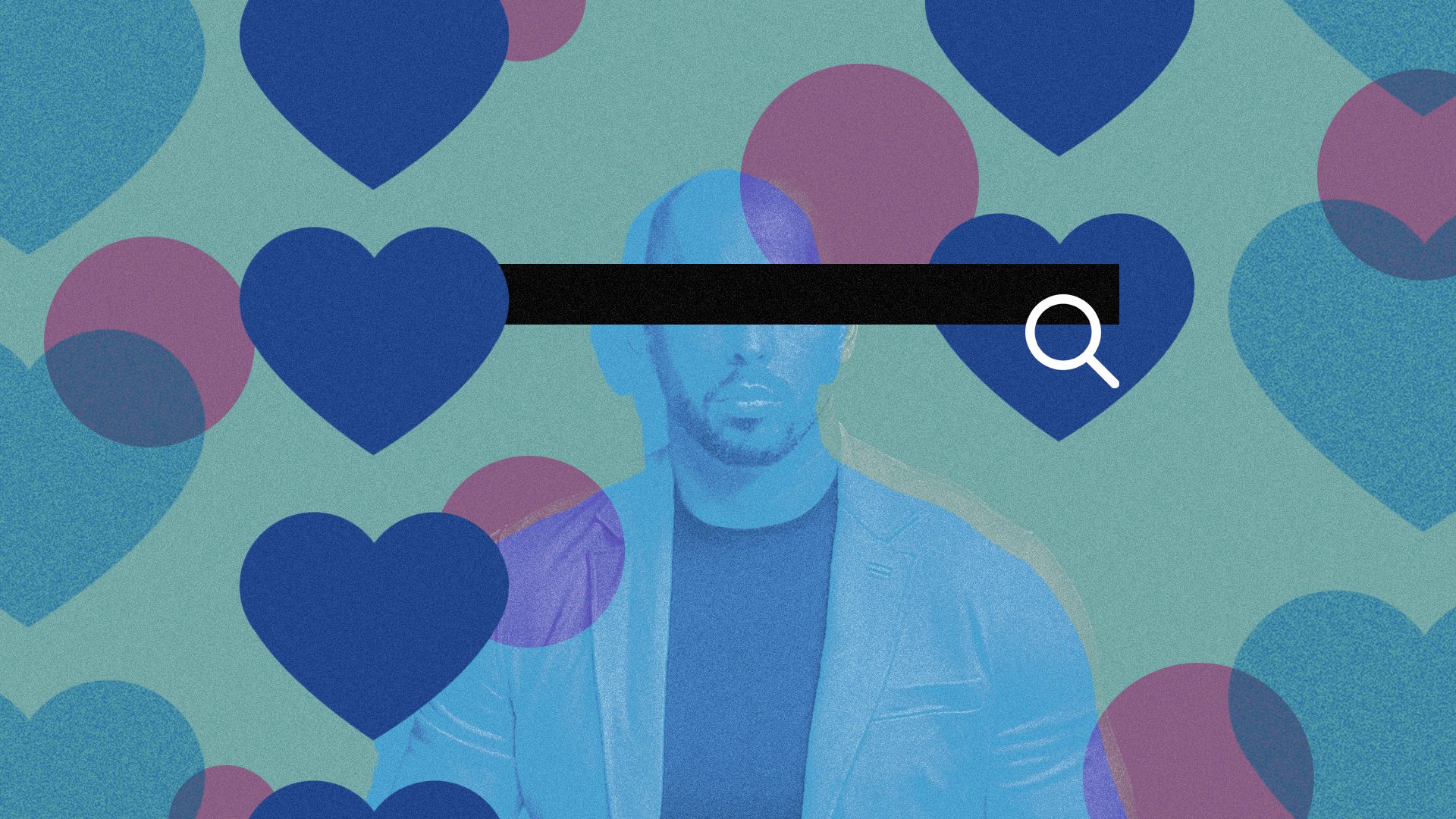Andrew Tate’s arrest highlights a tactic used to exploit young women into human trafficking known as the ‘loverboy method.’ To learn more, a survivor of human trafficking explains how it works and debunks popular common myths.
Rebecca Bender was 18 when she thought she’d found someone to spend the rest of her life with.
After moving in with him after six months of dating, he told Rebecca his job was relocating him to Las Vegas and convinced her to join. As soon as they arrived, her partner went from being her boyfriend to her trafficker, and Rebecca was forced into prostitution.
‘He mirrored me,’ says Rebecca. ‘He used getting to know my vulnerabilities and my dreams as a tactic to offer me everything I ever wanted.’
‘I thought, everything’s going to get better, and this is a dream come true, and I fell in love.’
Rebecca’s trafficker used a tactic known as the ‘loverboy method’ to recruit her into sex trafficking.
What is the ‘loverboy method?’
The ‘loverboy method’ is a common tactic that involves a pimp, sex trafficker, or abuser targeting vulnerable, poor, and often young women with the impression of creating a romantic relationship.
Romanian officials cited the ‘loverboy method’ when laying out allegations against self-proclaimed misogynist influencer Andrew Tate and his brother for alleged human trafficking, rape, and the formation of an organised criminal group. On his archived website, he explained a process that resembles this method.
Tate said he’s been running a webcam studio for nearly a decade. Over 50% of his employees were his girlfriends, and ‘NONE’ were in the adult entertainment industry before they met him.
‘You’ll see loverboy more in the recruitment phase, where the trafficker’s trying to gaslight, breadcrumb, really get someone to fall deeply in love,’ says Rebecca. ‘They use really manipulative tactics, and then you see them get violent when the victim doesn’t comply, or there’s trepidation.’
Rebecca says this method mirrors the domestic violence power and control wheel, where the abuser sometimes becomes apologetic and sympathetic after being abusive, reminding their partner of the good times and the ‘honeymoon phases.’
‘You see it throughout your victimisation, where there are cycles,’ she says. ‘You see glimpses of what you remembered that the trafficker used to be.’
Rebecca also highlights how the ‘loverboy’ slowly instils beliefs and trust to control and manipulate their victim.
‘I think all of us think we’re too smart to be manipulated, we’re smart to be brainwashed, the reality is, it’s not obvious, or we all would see it,’ she says. ‘They’re really subtle, calculating steps. They’re not big sweeping gestures that would be noticeable.’
‘They’re small, and they happen over time, which is why that recruitment and the grooming phase is so important for a loverboy trafficker.’
From being unable to watch the news and check your emails or social media to gradually having control over your money, passwords, what you eat, and even your appearance, Rebecca mentions tactics that mimic cult behaviour.
Then suddenly, you’re being isolated from former associates, so you don’t have someone to call.
‘You’re being removed from society,’ says Rebecca. ‘You’re having information that’s being kept from you. That way, you don’t see awareness videos, you don’t see the news, you don’t see trafficking trending, you don’t get to read articles of red flags.’
‘They purposefully are keeping you away from outside sources of information so that you can’t gain knowledge because we know knowledge is power.’
Rebecca says once you have been restricted, it’s hard to leave.
‘Over time, when that becomes your lifestyle, then that’s when you’ve been manipulated,’ she says. ‘It’s really hard to run and escape, and if you do, then it becomes very violent at that point, so then you become trauma bonded.’
‘Over six years, you’re now completely brainwashed, and you’re in this cult, and you’re like, wait, how did I get here?’
Red flags to be looking out for
What are some of the signs you’re being manipulated? When you feel your boundaries are starting to be pushed, and you’re feeling uncomfortable about what would happen if you said ‘no.’
‘It’s slow, subtle pushing of your boundaries, especially when it comes to hypersexuality,’ says Rebecca. ‘Suddenly, they’re asking you to dance for a friend or pushing you to make a video together.’
‘You want to make your partner happy, and you feel the pressure. There’s cultural desensitisation in a sense of normalisation, and so it’s little things that we start compromising.’
Rebecca also mentions that everyone’s boundaries are different, which complicates things.
‘What was okay for me? What was I already doing, maybe even prior to meeting a trafficker? Was that something that they noticed, and that was why they targeted me,’ she says. ‘It’s very complex because every situation is very different, but those would be things you want to just be thoughtful of.’
‘Where is that line, and think that’s different for everybody, and it’s different in each relationship.’
Debunking myths about trafficking
After six years and three different traffickers in Las Vegas, two of which branded her by tattooing their names on her back, Rebecca escaped to London when her then-current trafficker was arrested for tax evasion.
She has since started the Rebecca Bender Initiative, a non-profit that equips first responders in identifying, prosecuting, and investigating human trafficking. A part of the organisation is Elevate Academy, the largest online school in the world for survivors of human trafficking.
In her work, Rebecca has noticed the many myths and misinformation online about trafficking, especially who the traffickers are and how they recruit.
‘Less than 1% of human trafficking is stranger abduction,’ says Rebecca. ‘It’s someone you know.’
‘All of those urban myths: zip ties on your car handle, peanut butter on your windshield, coffee mugs, if you have a number written on your window, if someone hands you a tissue don’t take it, if they hand you a rose it’s laced with drugs, and you’ll pass out, none of those are true.’
‘15 years I’ve been doing this, I’ve trained over 115,000 law enforcement officers, never once has anyone ever seen a case like that.’




















